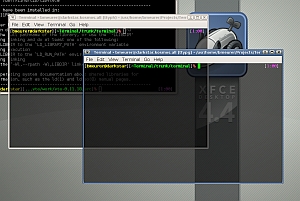Most of the instructions for mirroring a directory with Rsync involve mirroring the data to a different server. You can also use Rsync to sync or mirror a directory on the same computer as the source directory.
Here is an example command on how to mirror two directories locally. In this example, /home/apache/public_html is the source directory and /home/apache/public_html_bak is the destination directory. Forward slashes at the end of the directory names in the rsync command are important so don’t forget them. The sync is one-way in that the destination will mirror the source:
rsync -avr --delete --links /home/apache/public_html/ /home/apache/public_html_bak/
If you need to preserve ACLs and Extended attributes then you need to add the -A and -X switches:
rsync -avrAX --delete --links /home/apache/public_html/ /home/apache/public_html_bak/
If you want to just do a dry run to see what will happen when you run Rsync, then add the -n switch:
rsync -avrAXn --delete --links /home/apache/public_html/ /home/apache/public_html_bak/

